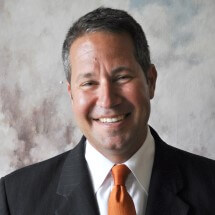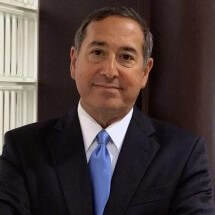Is Your Spouse’s Bully of a Divorce Lawyer Making You Crazy?
- At October 30, 2013
- By Miles Mason
- In Divorce, Family Law
 1
1
Handling a Bully Divorce Lawyer. What Do Divorce Lawyers Do Who Are Bullies? How Do You Know When Another Lawyer Is Trying to Bully You? How Would You Advise Family Lawyers When Opposing a Bully Divorce Lawyer?
See contact information below for the lawyers in the video.
Tennessee divorce is not fun. It is not a game. It certainly is not easy. Unfortunately, nothing adds difficulty to an already difficult situation like the belligerent, agitating, self-aggrandizing bully of a divorce lawyer who happens to represent your spouse. You didn’t pick ‘em, but you’re stuck with ‘em.
The question, then, is how will you deal with that lawyer? Can you still achieve your goals for a fair property settlement, a reasonable parenting plan, and Tennessee alimony? To answer these and similar questions, consider what may be the motivating force behind the lawyer’s bullying behavior.
Why Your Spouse’s Lawyer Attacks You
Is your spouse’s attorney bullying you? If you answered in the affirmative, you may be somewhat relieved to know this is nothing new. Consider the following three divorce tactics:
1. Wear You Down
Some divorce lawyers believe they serve their clients best by doing everything possible to make the other spouse nervous, anxious, and confused. Divorces have a powerful emotional component which can be exhausting for both parties. In applying constant pressure, the bullying lawyer may simply be trying to wear the other spouse down. A way of beating the person into submission, figuratively speaking.
By keeping you in a constant state of agitation, your spouse’s lawyer may hope to push you into settling on any terms just to make the stress go away. This is why it is so very important to have your own lawyer, someone skilled at dealing with the bully’s tactics.
2. High Conflict Hurt
Some divorce lawyers bully in every case. This is their default strategy, one that envisions the parties as combatants who must either win or lose. Some spouses make divorces high-conflict and tell their lawyers to bully. As marriage and family therapist Virginia Gilbert noted in a recent Huff Post article: “High-conflict personalities thrive off of battle.”
Regardless of who ordered the high-conflict tactics, they must be dealt with. Experienced divorce lawyers know how.
3. In Like A Lion, Out Like A Lamb
Some scorched-Earth divorce tactics are the last defense of a defensive and scared spouse or lawyer. (An example of scorched-Earth litigation might be repeated delays, continuances, and dilatory tactics purposefully used to drag things out at the expense of the other spouse.) Although the bully may have started the case like a lion, he or she may go out like a lamb.
Unprofessional tactics and negative strategies can be a good sign that you have a strong case and a good divorce lawyer. After being bullied in the divorce, just knowing that your legal counsel worries your spouse or scares your spouse’s attorney (or both) can be very rewarding.
How to Handle the Bullying Divorce Lawyer
Here are a few tips to help you manage your spouse’s less-than-personable lawyer:
● Hire a competent divorce lawyer to represent you.
Don’t let your spouse’s lawyer use his or her knowledge of the legal system to walk all over you. If your spouse has hired an overly aggressive attorney, you really should seek legal representation to balance power during divorce negotiations and at trial, if one becomes necessary. This is not the time to depend exclusively upon your wits in a do-it-yourself divorce. Hire a competent divorce lawyer to represent your interests and to deal with your spouse’s lawyer directly.
● Don’t take it personally.
Just because your spouse’s lawyer is a… not nice, is attacking your case and your credibility, try not to take it personally. That lawyer certainly doesn’t. Aggressive posturing is just how he or she approaches the case – it’s win or lose, your sensitivities really aren’t part of the equation. Yes, not taking hurtful words to heart is easier said than done. But this is a divorce. In many ways, you and your soon-to-be former spouse are adversaries. Your objective should be to achieve the best outcome possible under the circumstances. This requires good decision-making at every stage in the legal process, from divorce negotiations to litigating child custody. Good decisions require logic and reason, something that is very hard to accomplish if you’re reacting emotionally to the other side’s most recent posturing.
● Stay out of the muck.
As challenging as it may be, don’t let your spouse’s attorney drag you down into the muck, too. If he or she prefers to wallow around in the sty, so be it. Be above the acrimony, the judge will notice. And if you have children, you’ll benefit from the high moral ground on custody and parenting time issues. Depend upon your lawyer to counter any misrepresentations in an appropriate forum and to bring out the best in you for the judge and all to see. Be the credible parent, the reasonable party, the deserving spouse.
● Know when enough is enough.
Ask for sanctions when your spouse’s lawyer crosses the line by, for example, making materially false statements in court, filing motions to harass and delay, or taking a position on an issue that is contrary to Tennessee law. Know when enough is enough and consider seeking your pound of flesh.
How are divorce sanctions imposed for violating Rule 11 of the Tennessee Rules of Civil Procedure? Take a look at Tennessee Husband Awarded $61,000 in Attorney’s Fees Sanctions.
Below, we have a list of the attorneys, their respective cities, and their contact information.
Q: What Do Divorce Lawyers Do Who Are Bullies?
Barry Gold:
I want to tell you what divorce lawyers who are bullies do, but it’s not from my experience as one. I’ve been on the other side of it. Let me preface it with a statement that a much smarter attorney than me said to me many years ago. He said, “A good divorce lawyer’s job is always to be working toward trying to get to a fair and reasonable settlement as quickly as can be done.” That way the parties have the least amount of their financial and emotional resources caught up in the process, and they are able to preserve as much of their dignity, their money, and their resources and generally to get on with their lives.
The bullies, I think, take a different approach, or at least view that differently. They use the process as a way to try to menace or hurt or bludgeon the other side. They’re often disrespectful to the lawyers, sometimes even openly to the court, but the process becomes the punishment and that’s a pretty egregious thing. When you show me someone who takes a divorce case and proceeds from a view of wanting to make it painful for the other side, that’s a very misguided approach. It’s terribly un-constructive.
Steven Peskind:
You identify a bully divorce lawyer several different ways. Number one, by their reputation. Number two, by their demeanor and tone and their communications. And number three, is lack of professionalism, name calling, that kind of stuff.
Scott Friedman:
The divorce lawyers who are bullies do not cooperate with exchange of information. We call it discovery in our world. They also, I think, make unrealistic promises to their clients, that create more drama and more litigation to benefit really only the attorney.
Randall Kessler:
It’s pretty obvious. What’s interesting about divorce lawyers is we know each other, in most cities, whereas criminal defense lawyers they’re always fighting the prosecutors, so they’re polarized. Prosecutors are always trying to put my guy away. Insurance defense lawyers, other plaintiffs’ lawyers are always trying to take money from the insurance companies. Family lawyers, we know each other very well because I represent a wife who’s been abused against another lawyer. The next day, I might represent a husband, who’s being accused of abuse against that lawyer, who’s representing the victim in that case. So, we sort of are in each other’s shoes and we know the way you should act in a family law case and to take everything with a grain of salt. So, I think the good lawyers have a reputation for saying, “Look, this is what my client is telling me. I wasn’t there, but this is what I think the facts would be.”
The bad lawyers will say, “Your client did this and your client did that.” And they always end up with egg on their face, because when you go to court and it doesn’t turn out exactly like they said, suddenly, they say, “Well, my client lied to me,” or “I didn’t know those were the facts.” Well, that’s a problem.
But another problem, I think, with family lawyers is a lot of us are solo practitioners. And I don’t mean that there aren’t some great solo practitioners, but I surrounded myself with a lot of lawyers. That’s why we have 16 divorce lawyers here so that if someone tells me something that just doesn’t add up, I can run into another lawyer’s office and say, “My client said this, this, and this happened. Does that make sense to you? Does it add up?” And they give me questions and it’s a sounding board.
But it’s not really hard to find out when a lawyer is a bully. You just know it. I had one the other night who wrote to me at 8:00 at night and said, “I wrote to your paralegal at 6:30 at night and she didn’t answer me.” And I felt like using that old line from Animal House, “You don’t get to abuse our pledges. Only we get to abuse our pledges.” You don’t get to mistreat our paralegal. Only we get to mistreat our paralegal. If someone is rude to your staff, you know they’re a bully. If someone’s rude to you, you know they’re a bully.
It’s really not a good thing to be a bully in a family law case, because you’re going to see the same lawyers again. And the next time around, no courtesy, no extra continuances, no extra time to respond to documents, to document request. It’s not really hard. I can’t really tell you this is how I know someone’s a bully, but it’s like Potter Stewart, the Supreme Court Justice, said about pornography, “I don’t know how to describe it, but I can tell you, I know it when I see it.” So, you know a bully when you see it, and I think reputation really tells you. You can ask any divorce lawyer, “What did you think of this person?” And if they’re a bully, everybody knows it.
Miles Mason:
Divorce lawyers who are bullies use language in an attempt to intimidate and frustrate the other lawyer. Usually that language is inappropriate and unprofessional and is often totally unrelated in size or scope to what the issue is, and that bullying is usually a sign of a less talented lawyer.
Q: How Do You Know When Another Lawyer Is Trying to Bully You?
Scott Friedman:
How do I know when another lawyer is trying to bully me? With the same lawyers in our community, some of them I just know are going to be bullies, that’s their go-to. But if I have a new attorney or somebody that I’m not aware of, it’s an attitude. It’s a lack of cooperation. It’s a lack of being open to suggestions that someone may take as critical, but they’re really just suggestions to help the case move along. Those are the things that I see with bullies because the bullies have one focus, and that’s to bully you or your client and do whatever it takes to make that happen, even if it’s unreasonable.
Joe Booth:
Sometimes they’re not really good at it. I sometimes miss the fact that an attorney’s trying to bully me, because somewhere in the bravado or somewhere in the conversation, I just think it’s funny and just doesn’t really land home, especially as I have aged, and my credentials have risen and people can say all kinds of things and I’m able to move that to just simply something logical they can do. I had a conversation the other day, somebody said, “Well, if you don’t follow through with this, we’re going to do depositions.” And I said, “Well, okay.” That’s not a threat, that’s an option you had last Tuesday. That’s an option you have today, and you can do them tomorrow. I think it’s going to be a waste of time in this case. I think that they don’t serve any purpose, but I’m not bullied by the idea that somebody’s going to make a choice to do an alternative they otherwise could. Threats very rarely work, and I would say old lawyers are really hard to threaten.
Miles Mason:
You know another lawyer’s trying to bully you when they use unprofessional language and are overly aggressive, relative to the importance of the issue. And sometimes it’s very much like a Shakespeare quote, “the lady doth protest too much,” just by arguing and sending another lawyer a three-page letter, when two sentences will do, usually is an indicator of some sort of willingness to go farther than it needs to go, for that particular issue in that particular situation, and that shows a lack of professional judgment.
Q: How Would You Advise Family Lawyers When Opposing a Bully Divorce Lawyer?
Steven Peskind:
That’s interesting, because I just wrote a book and that was one of the topics I covered in the book. The question is, how does a newer lawyer effectively deal with either a treacherous or a bully lawyer who they confront?
Number one, prepare thoroughly so you make sure you’re a master of the case, both the law and the facts.
Number two, deal with the bully the same way that you would as a 10-year-old kid on the playground. If you cower to them, they’ll take advantage of you. If you punch them in the nose, the bully oftentimes will collapse, and I mean that figuratively, of course. You don’t let them get away with it. You strike back and you’re assertive and self-confident in your dealings with them. And oftentimes, their behavior will moderate. They’ll take advantage of you all day long. In the courtroom, they’re going to try to trip up a newer lawyer and the newer lawyer needs to be self-confident and able to withstand the onslaught. Usually if you can just hold on long enough, it will end up okay.
Barry Gold:
My best advice when faced with a bully is to not take it personally, and I’m speaking as the lawyer. I’m assuming the other lawyer is the bully. Don’t take it personally. Easiest thing in the world to do is to think I’ve got to respond with the same type of anger or conduct as they are dishing out. It’s not helpful. It also makes it very difficult for the judge to figure out who is the problem and who is not. So don’t take it personally. View that as this is a lawyer who doesn’t have the skills to be a better advocate and a better divorce attorney. They’re doing all they know. It’s more of a concession of weakness than it is strength.
Document everything in the case, document, document your file. Don’t have any hearing or proceeding where there isn’t a transcript. Don’t assume anything can be done informally. You want a letter, an email, something you can point to all the time. Get the judge involved in the case, suggest with a rule 16 conference, signal to most judges in a divorce case that it needs some additional oversight from the judge. So, you’re getting the judge involved quickly in the process that hopefully will give it some more structure. But I said, document the file all the time with everything. Don’t assume anything can be taken for granted.
Scott Friedman:
What advice would I give a family lawyer who’s opposing a bully lawyer? Utilize the court to your benefit. I find that if you have a bully lawyer, judges or magistrates generally recognize it, either by reputation of the lawyer, because they’ve been in front of them in the past, or just by picking up on it in a hearing. And so, the court’s your friend, right? Because if you’re reasonable to a judge or a magistrate, and that other side is unreasonable, you’re going to win every time as the reasonable person. So, I suggest that in those cases, don’t trust the bully lawyer, and rely on the court to be your friend in that process.
Joe Booth:
I teach what is called collaborative law and I teach financial issues for the local law school. And it’s often a concern of the new attorneys how to handle someone who is what you might call a bully, and in bully mode. And I think it helps to, first, recognize that people who are weak, who are unprepared, and who are unsure are the first to jump to the bully mode.
Second, I think it’s important to recognize that if you objectify the situation that you’re in and understand what’s going on as far as your client’s needs, you can keep your own wits about you and don’t have to retort in kind. And I think it’s also really important to recognize that retorting in kind, being a bully back, or saying, “Oh no, you can’t,” simply stoops to their level. And anytime you argue with a fool, they’re going to bring you down to their level and beat you with the experience they’ve amassed over the years.
Miles Mason:
The advice I give young lawyers who are opposing a bully for the first time, even if that lawyer is very, very experienced, is very simple, don’t take the bait. When they ask you a bunch of rhetorical questions, see that for what it is, rhetorical, which by definition means, doesn’t call for a response. And if the bully lawyer is trying to put you in a corner, to negotiate from their framework, your job is to not go into that corner in the first place.
So, create your own settlement perspective, get a settlement offer out as soon as you can. As soon as you have the information and documents and you know what your client wants, prepare a settlement offer. Then, many of the bullying tactics won’t work because you’re in the commanding position of pushing dates and deadlines and pushing the case forward because you’ve done your work.
If rolling into mediation, you’re still getting bullied, then the mediation process may help you get that case settled, which is good, because that’s the goal, to get your client a favorable settlement within a reasonable period of time. And the bullying, often in my experience, goes away and dissipates as soon as the vitriol between the parties dissipates. Just having one settlement offer out, even if it’s not answered within a week or two, let’s say even a month, the vitriol tends to dissipate during that time and may get to a point where both parties are willing and able to settle from an emotional standpoint.
Thank you for contributing your experience and expertise to our “Top Family Lawyers Answer Divorce Questions” video series. You are the best. Cheers!

Randy Kessler
Atlanta, Georgia
Kessler & Solomiany, LLC
ABA Family Law Section, Past Chair

Melissa Avery
Indianapolis, Indiana
Broyles Kight & Ricafort, P.C., Of Counsel
ABA Family Law Section, Past Chair

Joseph W. Booth
Lenexa, Kansas
Law Offices of Joseph W. Booth
ABA Family Law Section, Co-Chair of Publications Board

Scott N. Friedman
Columbus, Ohio
Friedman & Mirman Co., L.P.A.
ABA Family Law Section, Past Chair

Stephen N. Peskind
St. Charles, Illinois
Peskind Law Firm, PC
ABA Family Law Section, Author

Barry L. Gold
Chattanooga, Tennessee
McWilliams, Gold & Larramore
TBA Family Law Section, Past Chair

Miles Mason, Sr.
Memphis, Tennessee
Miles Mason Family Law Group, PLC
ABA Family Law Section, Author










